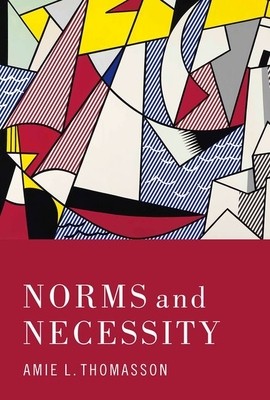
- We will send in 10–14 business days.
- Author: Amie L Thomasson
- Publisher: Oxford University Press, USA
- ISBN-10: 0190098198
- ISBN-13: 9780190098193
- Format: 14.7 x 21.1 x 2.5 cm, hardcover
- Language: English
- SAVE -10% with code: EXTRA
Reviews
Description
Claims about what is metaphysically necessary or possible have long played a central role in metaphysics and other areas of philosophy. Such claims are traditionally thought of as aiming to describe a special kind of modal fact or property, or perhaps facts about other possible worlds. But that assumption leads to difficult ontological, epistemological, and methodological puzzles. Should we accept that there are modal facts or properties, or other possible worlds? If so, what could these things be? How could we come to know what the modal facts or properties are? How can we resolve philosophical debates about what is metaphysically necessary or possible?
Norms and Necessity develops a new approach to understanding our claims about metaphysical possibility and necessity: Modal Normativism. The Normativist rejects the assumption that modal claims aim to describe modal features or possible worlds, arguing instead that they serve as useful ways of conveying, reasoning with, and renegotiating semantic rules and their consequences. By dropping the descriptivist assumption, the Normativist is able to unravel the notorious ontological problems of modality, and provide a clear and plausible story about how we can come to know what is metaphysically necessary or possible. Most importantly, this approach helps demystify philosophical methodology. It reveals that resolving metaphysical modal questions does not require a special form of philosophical insight or intuition. Instead, it requires nothing more mysterious than empirical knowledge, conceptual mastery, and an ability to explicitly convey and renegotiate semantic rules.EXTRA 10 % discount with code: EXTRA
The promotion ends in 17d.19:11:07
The discount code is valid when purchasing from 10 €. Discounts do not stack.
- Author: Amie L Thomasson
- Publisher: Oxford University Press, USA
- ISBN-10: 0190098198
- ISBN-13: 9780190098193
- Format: 14.7 x 21.1 x 2.5 cm, hardcover
- Language: English English
Claims about what is metaphysically necessary or possible have long played a central role in metaphysics and other areas of philosophy. Such claims are traditionally thought of as aiming to describe a special kind of modal fact or property, or perhaps facts about other possible worlds. But that assumption leads to difficult ontological, epistemological, and methodological puzzles. Should we accept that there are modal facts or properties, or other possible worlds? If so, what could these things be? How could we come to know what the modal facts or properties are? How can we resolve philosophical debates about what is metaphysically necessary or possible?
Norms and Necessity develops a new approach to understanding our claims about metaphysical possibility and necessity: Modal Normativism. The Normativist rejects the assumption that modal claims aim to describe modal features or possible worlds, arguing instead that they serve as useful ways of conveying, reasoning with, and renegotiating semantic rules and their consequences. By dropping the descriptivist assumption, the Normativist is able to unravel the notorious ontological problems of modality, and provide a clear and plausible story about how we can come to know what is metaphysically necessary or possible. Most importantly, this approach helps demystify philosophical methodology. It reveals that resolving metaphysical modal questions does not require a special form of philosophical insight or intuition. Instead, it requires nothing more mysterious than empirical knowledge, conceptual mastery, and an ability to explicitly convey and renegotiate semantic rules.

Reviews